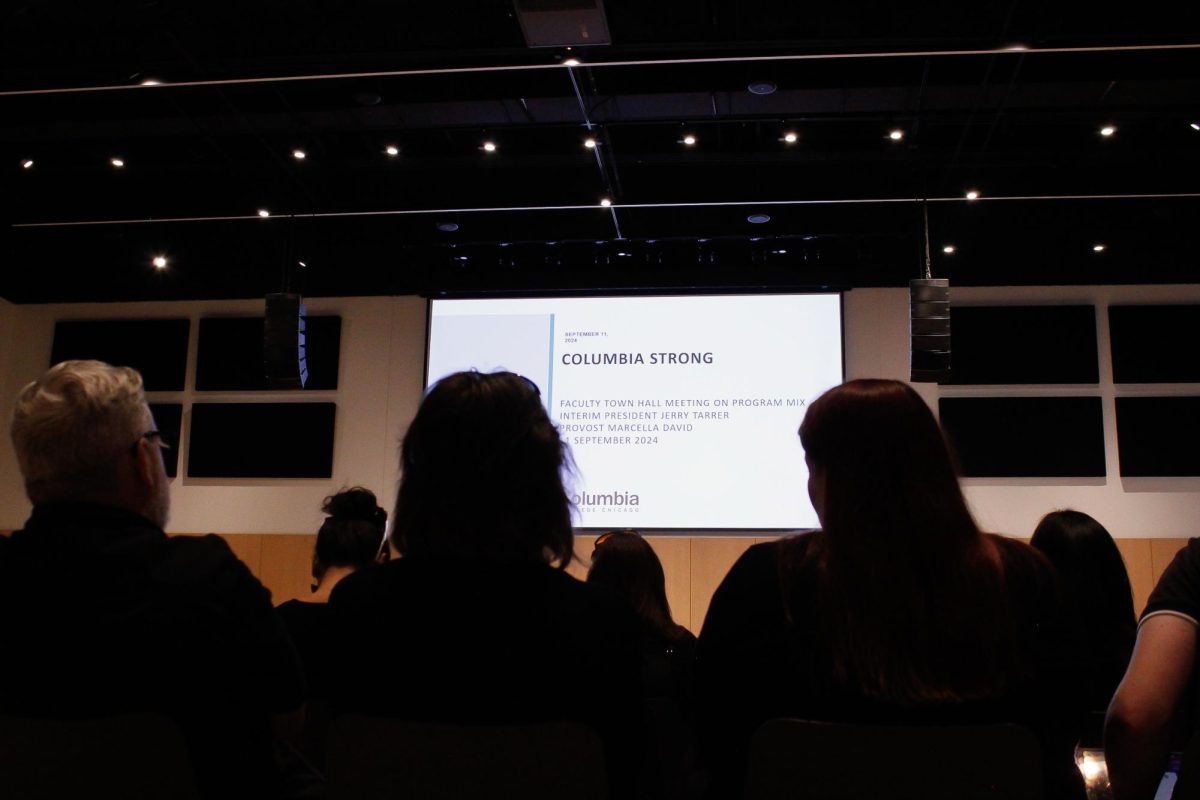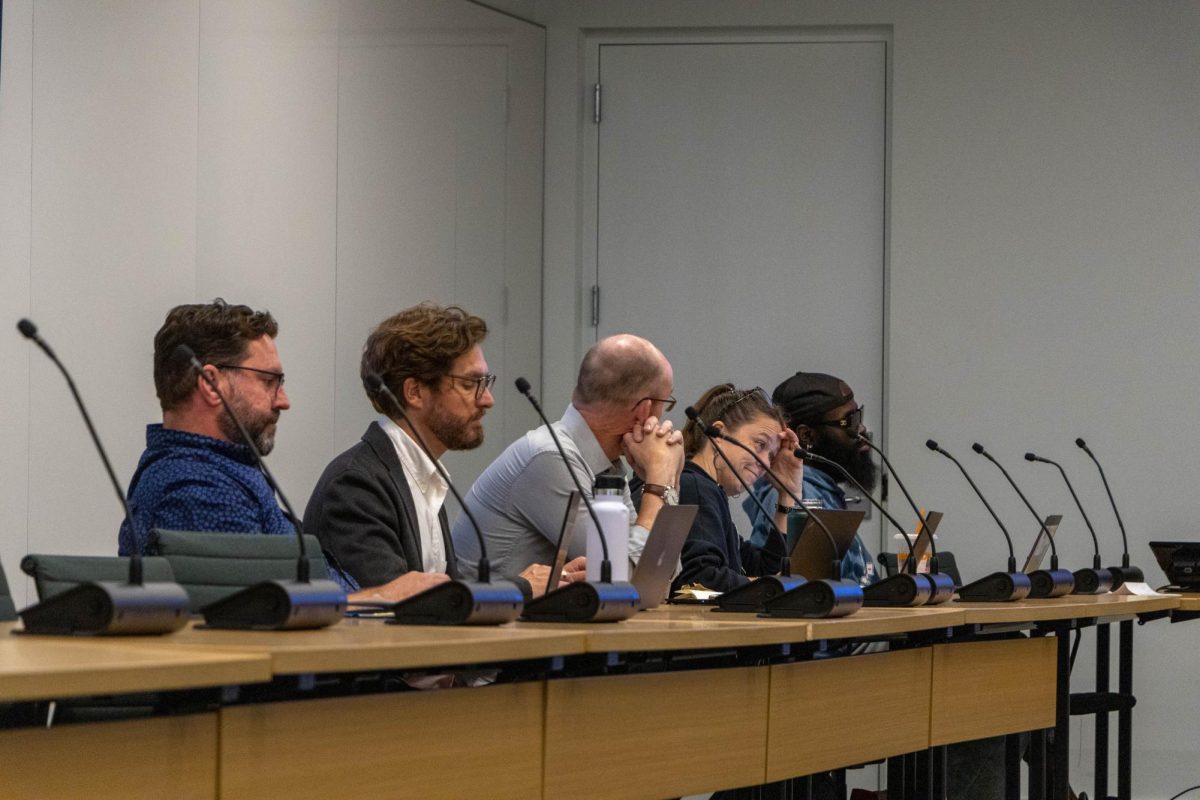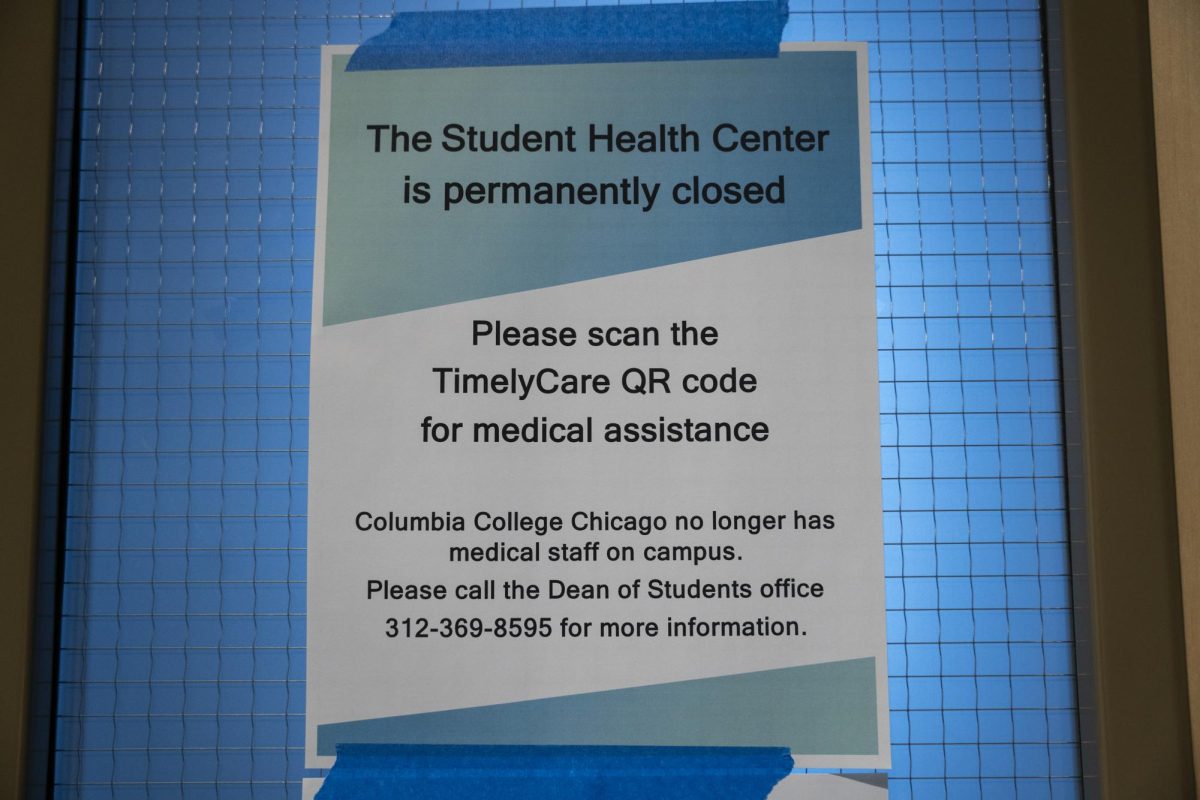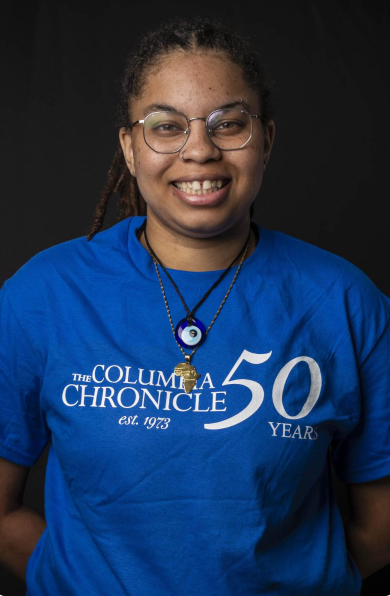Columbia’s Board of Trustees voted in favor of President and CEO Kwang-Wu Kim’s recommendations to restructure the colleges, including reducing the core curriculum from 42 to 30 credits and making $18 million in cuts for the next fiscal year.
After resuming discussions that began just before commencement, the board met on Monday, May 20 and voted to support Kim’s findings that the college met the requirement for “adverse circumstance” as outlined in the “Statement of Policy.”
This means the college will be able to lay off full-time faculty with tenured appointments.
“I believe that the declaration of this state without an articulated end is deeply troubling and will damage morale and retention – among all college constituencies – at the time we can least bear it,” said Faculty Senate President Madhurima Chakraborty, an associate professor in the English and Creative Writing Department, who is stepping down as senate president at the end of the month.
Some of the changes outlined in Kim’s final report include:
- Reduce the general education requirements from 42 to 30 credit hours, though students will still have to take courses in math, science, writing/communication, history and cultural studies. The new requirements will apply to incoming first-years in Fall 2024 and to students who already completed 30 core credits in the specified categories.
- Increase the faculty teaching load from 18 to 21 credits per academic year, which means faculty with tenure appointments will teach three to four courses per semester. Full-time faculty who are assistant, associate and professors of instruction already teach eight courses per academic year.
- Move the college from four schools headed by deans to eight schools that encompass the 15 current departments. The chairs of these departments will be replaced by directors under the new structure.
- Review all existing degree programs, possibly eliminating some majors but also adding new ones. That process is expected to start this summer with the assistance of a consulting firm, as the Chronicle previously reported.
The trustees also decided that adverse circumstances will remain in effect until the board votes otherwise, which faculty have argued effectively suspends tenure at Columbia.
The biggest impact will be in the three departments that deliver the core course: English and Creative Writing, Humanities, History, and Social Sciences and Science and Mathematics.
As the new core is phased in, the number of classes and percentage of courses taught by faculty in these three departments could decline 70% of what is needed, according to the report.
Faculty in these three departments currently number 73, which would be reduced to 60 or 62.
That could be achieved through retirements, buyouts and layoffs, according to the report.
The immediate $18 million in savings for the next fiscal year will come from $15 million in administrative reductions and $3 million in instructional expenses, Kim said in his report. These reductions are being finalized and will be announced by June 1, according to the report.
For fiscal year 2024, which starts Sept. 1, “reductions and efficiencies will be realized in departments across the college through all advisable means at our disposal,” Kim said in the report.
Chairman of the Board of Trustees John M. Holmes said in the email announcing the board’s decision that members were “confident” in their decision to support the administration’s recommendation.
Holmes also said the changes Columbia faces are not unique and the administration will “lean into the essence of what makes Columbia College Chicago vital to the education of creatives and double down on our commitment to propel students to fruitful creative careers.”
Holmes has said in the past that big changes are necessary to treat the $38 million budget deficit.
“I want to make a bold move now and put ourselves in a position to grow from here,” Holmes said, in an exclusive interview with the Chronicle on April 24.

The board was originally scheduled to vote on May 9. Just as the meeting started, the college mistakenly sent an email announcing that the board already had voted in favor of Kim’s recommendations.
The college quickly sent a follow-up email saying that the first message was drafted and “sent erroneously.” The college announced later that day that the vote would be delayed.
The decision comes after much push back from faculty and staff members across the college worried about the speed in which changes are being implemented and their job security. Kim announced the possibility of layoffs of full-time faculty with tenure appointments on Feb 9.
Chakraborty spoke to the board at the May 9 meeting and said an increased workload for faculty is expected, “It’s increased workload regardless, but people have been worried for their jobs.”
Craig Sigele, president of the USofCC, which started contract negotiations on Monday, said the union “rejected” Kim’s claims of “adverse circumstances” presented in the advisory report saying, “The administration and board’s recent actions continue to alarm us. The president’s advisory report lays out changes that could ruin the lives of our dedicated staff.”
Sigele said the changes proposed by the president require “far greater foresight” than the current timeline.
“Should layoffs occur, it will be a profound injustice, with our union staff, once again, bearing the overwhelming cost of these grievous administrative failures,” said Sigele, who is an academic manager in the Communication Department.
On Tuesday, May 21 Senior Vice President and Provost Marcella David and Jerry Tarrer, senior vice president and CFO, will be holding a full-time faculty gathering to discuss the final advisory report’s implementation. At an AAUP membership meeting on Friday, May 17, some faculty members raised the possibility of boycotting the meeting over concerns that their perspectives are not being considered during a restructuring that will take place.
In an email to students and faculty on Feb. 14, Kim announced that he will be stepping down as president on July 1. Tarrer will serve as interim president and CEO while the Board of Trustees conducts a presidential search.
In an email sent May 8, Holmes announced the presidential search panel will begin its search later this month. The search panel had its inaugural meeting on Monday directly following the board’s vote.
Holmes said the expectation is to extend an offer to the expected leader by January of 2025, with a summer 2025 start. He said he is looking for a candidate who is “someone who sees promise where others see problems, and who embraces clearing obstacles in order to usher in profound change for future generations of creatives.”
This story has been corrected.

















